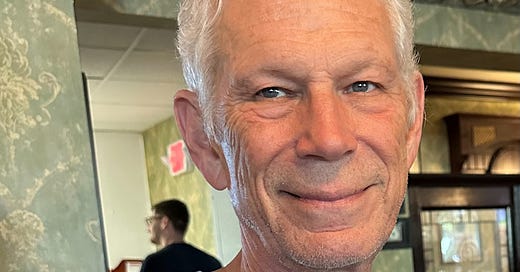In a society that equates perseverance with virtue, the idea of “giving up” is often seen as synonymous with weakness. From childhood fables to modern self-help books, we are repeatedly told: never quit, push through adversity, and fight until the end. The narrative is clear—if you give up, you’re a loser, lacking the grit or character required to succeed. Yet, when we peel back the layers of this pervasive belief, a more nuanced picture emerges—one that suggests that sometimes, letting go may be the most courageous and transformative act of all.
The Negative Connotations of Giving Up
Historically, giving up has been framed as a failure of willpower. Society’s heroes are the ones who struggle relentlessly, never surrendering to obstacles. The message is hardwired into us: quit, and you’re admitting defeat; persist, and you prove your mettle. This mindset manifests in various aspects of our lives—from school, where the “never give up” ethos is drilled into our minds, to the workplace, where relentless hustle is seen as a badge of honor. The pejorative labels are many: “a quitter,” “indecisive,” “lacking character.” In this narrative, the act of surrender is not just a failure to achieve, but an abandonment of one’s potential, a refusal to engage in the noble struggle against life’s challenges.
Books, movies, and media reinforce this narrative. Stories of triumph often focus on the journey of overcoming insurmountable odds through sheer determination. The underlying message is clear: success is earned by outlasting the competition, by resisting the urge to back down. Such portrayals, while inspiring on the surface, leave little room for the complexity of human experience. They neglect the possibility that what appears as “giving up” might, in fact, be a profound act of self-awareness and transformation.
Reframing Giving Up: A Path to Freedom
Imagine, however, if we were to look at giving up through a different lens—one that recognizes the strength in surrender and the wisdom in relinquishing control. In many contemplative traditions and modern philosophical frameworks, the act of letting go is not a sign of defeat, but an embrace of a larger, more interconnected reality.
When we relinquish the ceaseless battle against every obstacle, we create space for deeper awareness. Letting go of rigid expectations and the need for constant control allows us to become more attuned to the natural flow of life. This form of surrender is not about capitulating to fate; rather, it is about aligning with a more expansive understanding of our interconnectedness with the world around us. In this context, giving up becomes an act of courage—one that requires us to set aside our ego-driven narratives and open ourselves to the rich tapestry of life’s complexities.
The Benefits of Surrender
1. Increased Awareness: When we stop clinging to fixed outcomes, we allow ourselves to see the interdependencies in our lives. This broader perspective can illuminate the underlying patterns and connections that we might otherwise miss when obsessively focused on a single goal.
2. Emotional Freedom: Letting go of the constant need to control every aspect of our lives often leads to a profound reduction in fear and anxiety. By releasing the burdens of expectation and judgment, we make room for a more genuine experience of the present moment.
3. Enhanced Creativity: The rigidity of never giving up can stifle innovation. In contrast, embracing a mindset that welcomes change and uncertainty can ignite creative processes, encouraging us to explore new avenues that might otherwise remain hidden behind the walls of our self-imposed limitations.
4. Deeper Relationships: When we drop the façade of relentless determination, we become more vulnerable, allowing genuine connections to form. This vulnerability paves the way for unconditional, unselfish love and benevolence—a type of connection that transcends superficial achievements.
5. Personal Growth: Recognizing when to let go can be a vital step in personal evolution. It is not about abandoning goals but about reassessing them in light of our present reality, making space for growth and transformation that is aligned with our true selves.
Embracing the Paradox
The concept of giving up as a pathway to empowerment invites us to challenge long-held beliefs about struggle and success. It calls into question the glorification of relentless perseverance and offers a counter-narrative where surrender is seen as an opportunity for renewal.
In embracing this paradox, we begin to understand that the binary of “success” and “failure” is overly simplistic. Life is a continuum of experiences, each with its own lessons. Sometimes, the wisdom lies not in fighting the current, but in surrendering to it—allowing the natural rhythm of existence to carry us to unexpected, and often more fulfilling, destinations.
Ultimately, the act of giving up—when it means letting go of ego, control, and the incessant need for validation—can be one of the most liberating choices we ever make. It invites us to trust in the process of life, to find beauty in its uncertainties, and to discover a wellspring of creativity and compassion that lies beyond the confines of our fears.
So, perhaps it’s time to reframe our understanding of giving up. Instead of seeing it as an admission of defeat, we might recognize it as an invitation to a deeper, more authentic way of living—one that honors the complexity and interdependence of all that we are.




